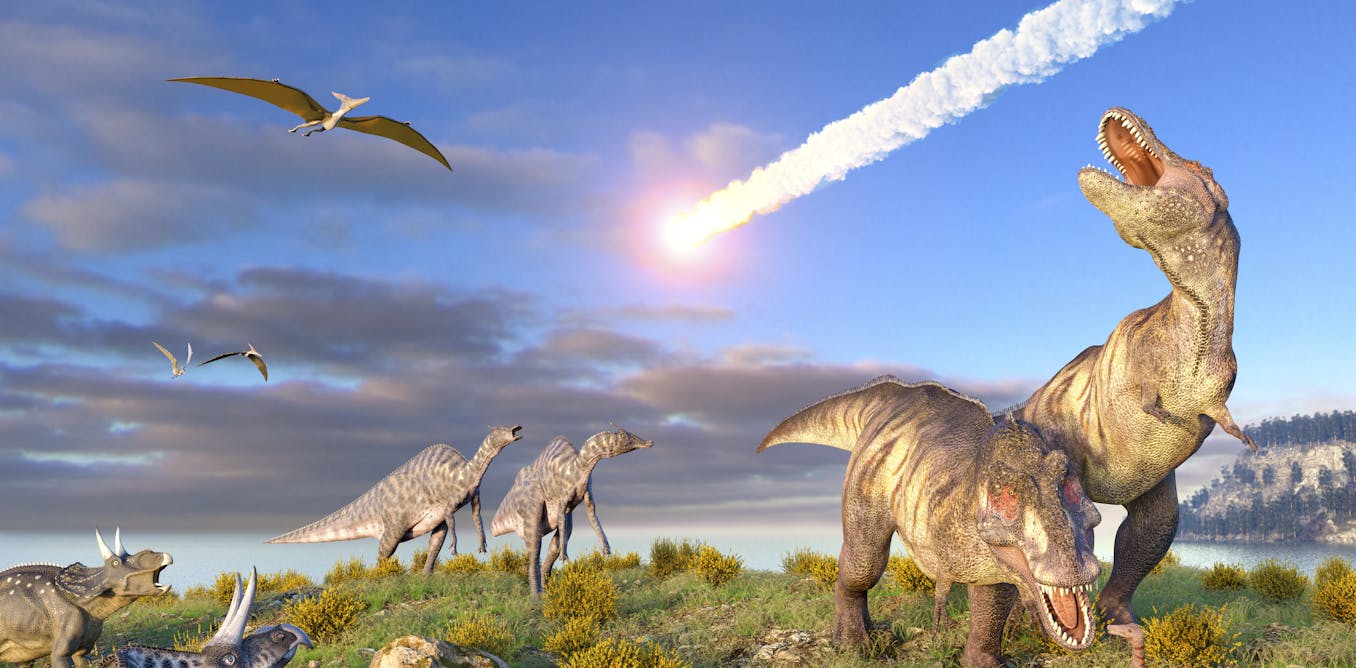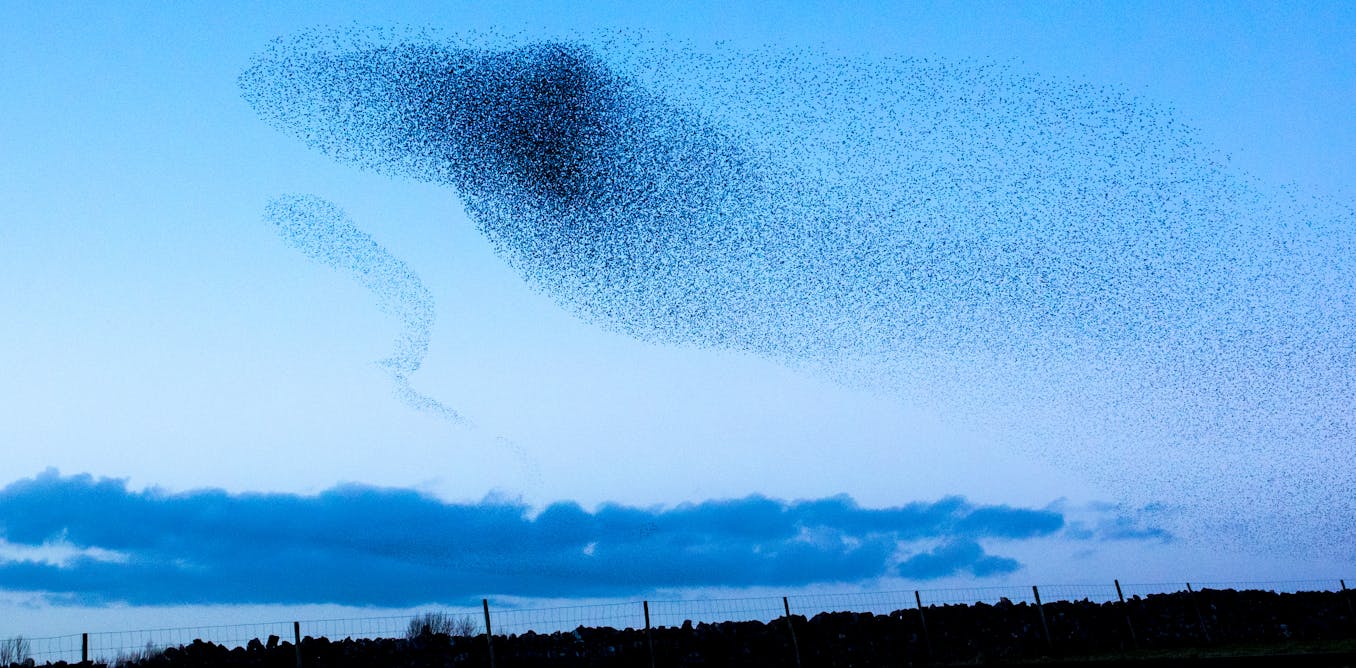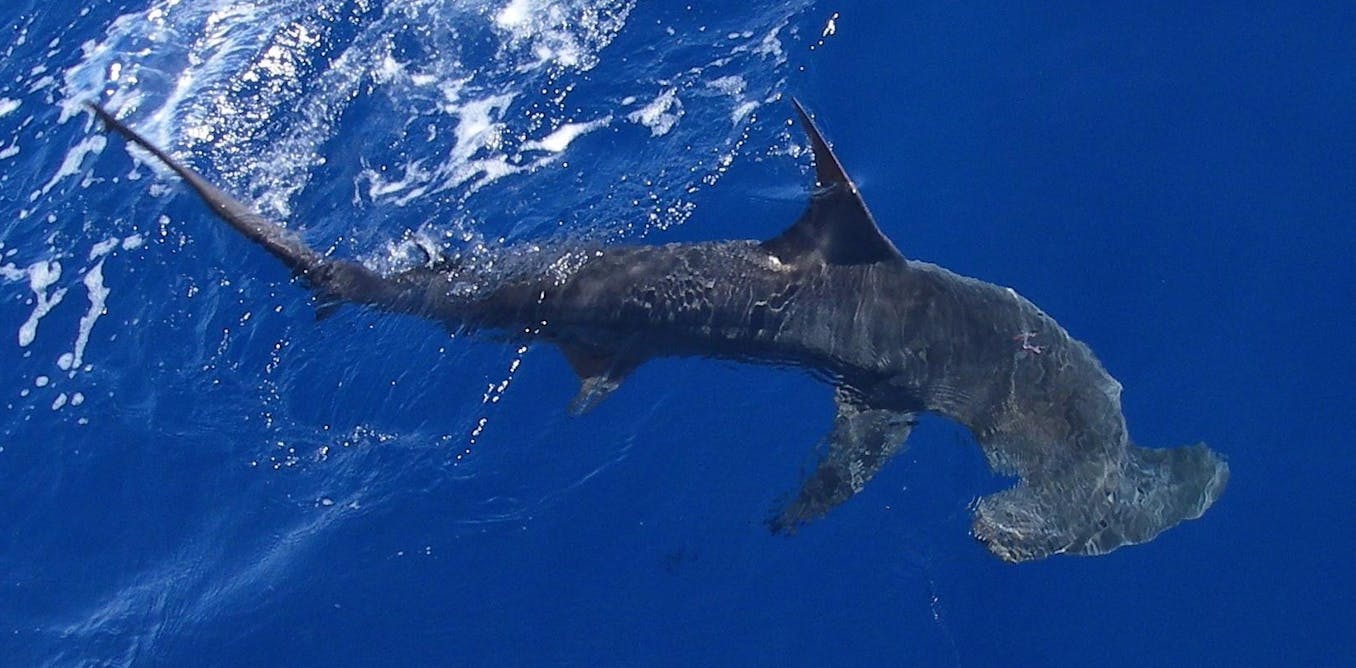Why do flocks of birds swoop and swirl together in the sky? A biologist explains the science of murmurations
These coordinated movements of a flock of starlings follow no plan or leader. Scientists used to think the animals must communicate via ESP to create these fast-moving blobs.
Tom Langen, Professor of Biology, Clarkson University •
conversation
March 14, 2022 • ~7 min
March 14, 2022 • ~7 min
Why do humans have bones instead of cartilage like sharks?
Hard and strong, or bendy and flexible? A cartilaginous skeleton provides advantages in the ocean, but wouldn’t stand up to life on land.
Michael Heithaus, Executive Dean of the College of Arts, Sciences & Education and Professor of Biological Sciences, Florida International University •
conversation
Feb. 21, 2022 • ~6 min
Feb. 21, 2022 • ~6 min
Why do people get diarrhea?
Poop comes in many shapes, sizes and textures. The kind that’s too runny might be the result of wayward germs, Crohn’s disease or lactose intolerance.
Hannibal Person, Assistant Professor of Gastroenterology and Hepatology, School of Medicine, University of Washington •
conversation
Feb. 14, 2022 • ~7 min
Feb. 14, 2022 • ~7 min
/
20










